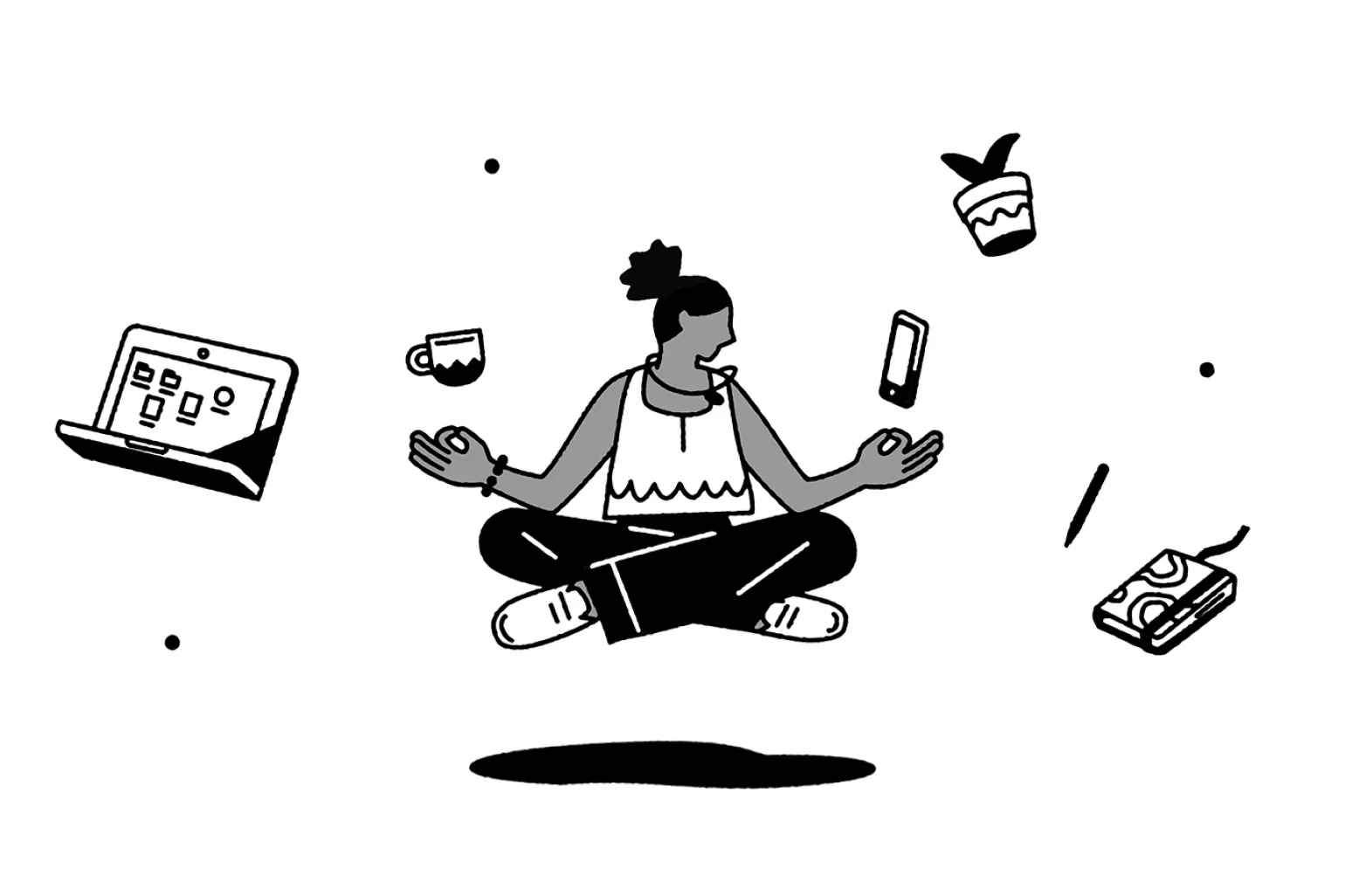Four Effortless Ways to Bring Well-Being into Your Work Day

Incorporating wellness into your workday can feel impossible at times. Between the morning rush, constant Slack notifications, a daily inbox mountain, back-to-back meetings, and family obligations, it is no mystery why burnout rates have been on the rise. It is challenging to prioritize yourself and set boundaries to maintain your well-being.
Wellness doesn’t have to mean an hour-long yoga class every Monday, Wednesday, and Friday (although kudos if you can pull that off!). Wellness can be simple and uncomplicated. Small moments of pause and reflection can make a difference in your daily stress management and productivity.
At NJI, we dedicate space into our regular workday for a variety of wellness activities. From financial wellness to quick coloring breaks to energetic corn hole competitions, we ensure there are opportunities for everyone to disconnect from work and do something fun as a team.
Here are four effortless ways to bring well-being into your workday:
01. Take mini-breaks.
It’s easy to convince ourselves that we don’t have time for a break, but taking a few minutes to pause throughout the day can actually increase your efficiency, meaning you won’t need as much time to complete a task. By stepping away from your laptop and the associated stress, you are allowing your body, mind, and energy to refresh and reset. To ensure you take breaks, try setting an alarm on your phone or blocking time on your calendar. Take those 5 to 15 minutes whenever you need them, and see if you notice the difference.
02. Keep your workspace clean.
You know that content feeling you get when you’re lying down in a freshly laundered, made-up bed? Imagine having that feeling every morning when you walk into your workspace. Physical spaces can have a major impact on our brains and our work. Cluttered spaces tend to trigger feelings of stress and anxiety, which affects our ability to focus. Especially on days where work seems never-ending, a messy workspace can make us feel even more overwhelmed. Taking a few minutes to tidy up after finishing a project or at the end of the day acts as a metaphorical decluttering of the mind, helping you feel more organized, alleviating anxiety and regaining a sense of control. It can also mark the end of the workday, creating a sense of closure that is sometimes hard to find when working from home.
03. Incorporate subtle movements.
Prolonged periods of sitting are a no-go. Every part of our bodies is affected when we sit for too long, so make it a priority to stop your sedentary habits and add movement back into your day. Take a break to move your ankles and your wrists, stretch your arms above your head, circle your neck, roll your shoulders, and walk around the room for a minute or two. Any simple movement allows stiff muscles to relax and oxygen to move freely again. Not only will you feel better, but you may also be more productive. For the more ambitious, NJI added walking treadmills to several desks across our global offices — team members rack up thousands of steps while working.
04. Check your posture.
We all know how important body language is to communication, conveying emotions, and giving context to the tone of the conversation. The same thing applies to our own body language when we communicate with ourselves. When you are standing in a confident posture with chest out and shoulders rolled back, you probably feel a lot different than when you stand in a defeated posture with shoulders forward and head tilted down. Now, imagine what you are communicating to yourself when you sit in a slouched position for hours while working. Not only is this bad for your physical health (leading to increased back, shoulder, and neck pain), but also it can affect your mental health.
A slouched posture can make us feel more stressed, lazy, and worried. Take control of your mental posture by noting your physical position throughout the day. If you are sitting, keep your feet planted firmly on the ground, sit up taller, roll your shoulders back, and keep your neck in line with your spine. If you are standing, keep your feet hips-width apart, draw your tailbone down, create a long spine, and release the shoulders down.
Your work is only as good as your state of mind. By learning to prioritize your well-being, you are also learning how to be calm, productive, and content.

